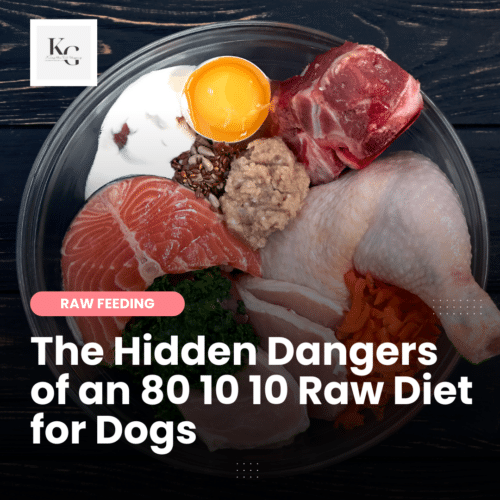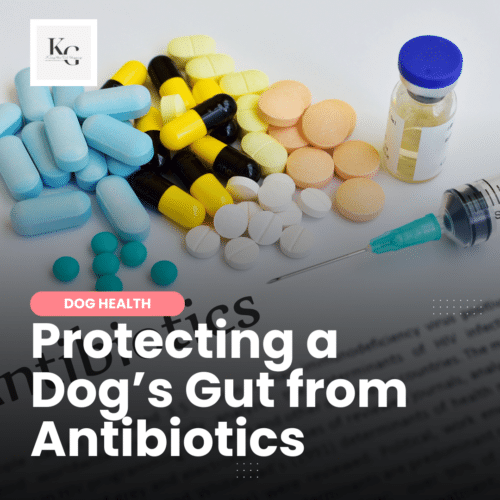Keep the Tail Wagging is supported by pet parents. I occasionally earn a commission (at no additional cost to you) when you click through an affiliate link to one of my favorite products. Thank you for your support. Read More
I keep seeing on social media that people will never use Wondercide on their pets because they changed their formula. This freaked me out because I've been a Wondercide customer for nearly eight years. I have two bottles in the house now that I use weekly in the spring, summer, and fall. Will I have to find a new option or take the risk with Wondercide's new formula?
Yes, this is how my mind works, however, five years of being a raw feeder on social media kicks in and I remind myself that I have to do my own homework. I've shared way too many articles based on the title alone (of course I didn't read the article before sharing) only to find out that I was spreading Fake News along with everyone else. I'm not saying that people who don't want to use Wondercide is wrong, I'm simply saying that before I toss out a product that has worked so well for my dogs and protected them from bugs and the use of chemical flea repellents, I want to know more.
So what's the deal with Wondercide? Is Wondercide still safe for dogs?
Wondercide Reformulated their Flea Repellent in 2016
First things first, the two bottles of Wondercide that we have ARE the new formula. I've been using it for a year, at least, with no issues. Of course, some side effects only present themselves years down the line, so I continued to ask questions.
I sent an email to Wondercide to ask them about the change.
“Hi! I'm interested in the change that was made to the ingredients in the Pets+Home formulas. You do have a response in your FAQs, however, it doesn't tell me exactly what ingredients were removed/added. Or maybe it does and I'm confused because I keep reading that you added something that is harmful to pets.” ~ Kimberly Gauthier (that's me)
“Hi, Kimberly.
Thanks for your dedication to safe, natural products like ours! We appreciate your passion, and are happy to elaborate.
Our Flea & Tick for Pets + Home product did undergo a reformulation in 2016, and the new spray is just as effective, and just as safe for pets and people as the former Pets+Home spray.
The original formulation of the product consisted of: cedar oil, hydrated silica, and (depending on the scent) either lemongrass or rosemary oil. A breakdown of all the ingredients in the new spray can be found here:
https://www.wondercide.com/ingredients
When our US supplier of hydrated silica (an ingredient commonly used in human personal care products, like toothpaste) decided they were no longer going to sell this ingredient for use in pest control products, we chose to stand by our commitment to quality, US-based sourcing and reformulated. To the best of our knowledge, this change effective anyone making natural pest control products that contained hydrated silica.
Our mission is and always has been to help people and their pets limit their exposure to unnecessary toxins and pesticides, and we're confident this is reflected in every Wondercide product. All of our products are made from safe, natural ingredients and are 100% free of synthetic chemical pesticides or poisons.” ~ Wondercide
When I make essential oil products for myself, I use various oils (coconut oil, hemp oil, almond oil, jojoba oil) as a carrier to deliver the essential oil. Wondercide used hydrated silica in their original spray as the carrier to deliver the essential oil. Wondercide now uses water as a carrier and since oil and water are constantly separating, they have added ingredients in the new formula to help the spray remain stable and to prevent separating/settling:
- Sodium Lauryl Sulfate (coconut oil)
- Water
- Polyglyceryl Oleate (blueberries)
- Ethyl Lactate (corn)
What is Hydrated Silica?
“Hydrated silica is naturally derived from silica (silicon dioxide), an abundant compound that forms about 12% of the earth's surface.” ~ Tom's of Maine
Although trust in The US Food and Drug Administration (FDA) has been waning in the raw feeding community, they are currently the only governing agency that let's us know what's safe and what isn't safe. The FDA has reviewed the safety of hydrated silica and allows brands to use it in products, including toothpaste, beer, the paper used to package foods, and many drinks and food. Why isn't this common knowledge? Because hydrated silica is clear, odorless, and tasteless.
The FDA has listed hydrated silica as “GRAS,” which means that it is Generally Recognized as Safe. But just because the FDA deems something safe doesn't mean that it is safe – we're learning new things all the time – and that's why it's important that we continue to do our research.
Ingredients in Wondercide Flea and Tick Repellent
Cedarwood Oil
- Source: Texas and Virginiana cedar trees
- Purpose: Kills and repels pests
- Aromatherapeutic qualities: Calming, Soothing, Comforting.
Lemongrass Oil
- Source: Lemongrass
- Purpose: Kills and repels pests.
- Aromatherapeutic qualities: Revitalizing, Invigorating, Uplifting.
Rosemary Oil
- Source: Rosemary
- Purpose: Kills and repels pests.
- Aromatherapeutic qualities: Relaxing, Restorative, Clarifying.
Peppermint Oil
- Source: Peppermint Leaves
- Purpose: Kills and repels pests.
- Aromatherapeutic qualities: Energizing, Uplifting, Invigorating
Sodium Lauryl Sulfate
- Source: Coconut oil
- Purpose: Allows oil and water to mix and remain stable. Also repels fleas & ticks.
Sesame Oil
- Source: Sesame seeds
- Purpose: Enhances the repellency of essential oils.
Water
- Source: Deionized water
- Purpose: The “carrier.” Holds all the ingredients together in a solution.
Polyglyceryl Oleate
- Source: Blueberries
- Purpose: Allows oils and water to remain combined after shaking (emulsifier).
Glycerin
- Source: Vegetable oil
- Purpose: Maintains moisture (humectant).
Sodium Chloride
- Source: Table salt
- Purpose: Inhibits bacterial growth.
Ethyl Lactate
- Source: Corn
- Purpose: Prevents settling (dispersant).
Sodium Citrate
- Source: Citrus
- Purpose: Modifies the pH of the solution (pH adjuster).
Citric Acid
- Source: Citrus
- Purpose: Modifies the pH of the solution (pH adjuster).
Vitamin E
- Source: Vegetable oil
- Purpose: An antioxidant that protects essential oils from reactions with oxygen (oxidation).
Coconut Oil Repels Fleas?
There are many people who will tell you that Sodium Lauryl Sulfate (SLS) is toxic for dogs, however, I'm not 100% sure I agree. Wondercide only uses SLS that is derived naturally from coconut oil which is a renewable, plant-based, and biodegradable material. They never source SLS from petroleum.
“Research from the American Cancer Society indicates that SLS is not carcinogenic (cancer-causing) nor is it a hormone or endocrine disruptor. It is given the lowest rating of health concern, 1-2 on a scale of 1-10, in the EWG (Environmental Working Group) Skin Deep database for personal care products. It’s a scale that many people trust to help them make decisions on products they will use in their homes.
Also, the EPEA (Environmental Protection Encouragement Agency) completed an in-depth material assessment of SLS and determined that SLS is not carcinogenic, not developmentally harmful, and is biodegradable and compatible with water treatment systems. We avoid using SLS unbuffered and at high concentrations, due to the potential skin irritation consideration, but otherwise, find no concerns to health or the environment.” ~ Wondercide
There is still some hesitation to use products that contain SLS (sodium lauryl sulfate) because of a 1983 study in the Journal of the American College of Toxicology (1983, Vol. 2, No. 7) in which researchers noted that the longer SLS was in contact with the skin, the greater the chance of irritation. The study goes on to recommend that, “[i]n products intended for prolonged contact with skin, concentrations should not exceed 1%.” Great news, Wondercide products contain far less than 1/10th of what we're seeing in many products on the market, which can go up to 20%.
But does coconut oil kill fleas? The answer is “YES!”
Coconut oil does kill and repel fleas (put some on before you head out with the dogs) because of the lauric acid. We can massage it on our exposed skin and rub it through our dogs' coats (the hair acts as a wick and will distribute the oil as they move).
And the bonus is that the coconut oil not only moisturizes our skin, it kills yeast too, so if you have a dog that has a yeast issue – massage extra-virgin, organic coconut oil in his or her skin! I've used it to clear up yeasty ears many times.
So Why Won't People Use Wondercide?
I've done some searching online and the only concerns I found are the following concerns:
1 – Wondercide changed their formula so people are afraid to use it. I addressed this in an email exchange with Wondercide. The change to their formula was to make up for the loss of hydrated silica as an ingredient.
2 – The ethyl lactate, which is sourced from corn, may cause a problem for dogs that have a corn or grain intolerance. None of my dogs have a corn or grain sensitivity. I've been using the new formula for nearly two years and none of our dogs have had a skin reaction to Wondercide.
While I respect that some people may continue to have concerns with Wondercide, I'm not willing to toss them aside. I am, however, happy to try other products as I discover them because I love learning about products that work with our dogs.
I order the clove free Wondercide Flea, Tick, and Mosquito repellent from Amazon.com. I like it because the scent is mild and I find it effective. I even use it on myself.
DIY Flea and Tick Repellent
I also love DIY and essentials oils and have used the following recipe successfully in the past. You can find more DIY essential oil recipes for dogs (shampoo, paw balm, and more) in my blog post, 13 Essential Oil Recipes for Dogs.
Flea & Tick Repellent Spray
This recipe was inspired by what I know about repelling fleas naturally. I know which scents they don't like so I used those in this product. I've adapted the recipe since I first made it in May.
- 5 drops of Lavender
- 2 drops Citronella
- 2 drops of Cedarwood
- 2 drops of Lemongrass
- 2 tablespoons of carrier oil
- 12-16 ounce spray bottle (use a 16-ounce bottle if this mixture is too strong)
The more oils I use, the fewer drops I'll add to prevent the scent from becoming overwhelming.
CLICK HERE to order essential oils from Plant Therapy
Remember, before accepting someone else's “truth” about how you should raise your dog, please do your homework. What works for one dog may not work for another and while everyone is well meaning when they offer advice and recommendations, our dogs count on us to take the extra step to learn what is best for them.

















Please check with Dr. Melissa Shelton about what essential oils are safe to use for pets. She is an expert in the utilization of essential oils with pets and I use her Animal Desk Reference to determine what is safe and what isn’t for my dogs and based on what I’ve learned from her, I’m very careful about where I source my oils.
You can find her guide here: https://amzn.to/2JnF9U0
This is an excellent point and I’m going to ask Wondercide about the essential oils they use. It’s important that they be medical grade if being used on pets.
Both lavender and lemongrass are safe to be used with pets. My source is Dr. Melissa Shelton, who is an expert in the utilization of essential oils with pets and has her own line of oils as well as an Animal Desk Reference guide (https://amzn.to/2JnF9U0). What’s important is finding quality oils from reputable sources. This is why I only buy from Plant Therapy and Simply Earth.
Agree, stopped using lavender, lemongrass. Have to toss expensive shampoo but will use the Wondercide lemongrass to spray outside yard only and not on dogs, their houses,blankets. I am considering getting wondercide w/rosemary spray. Have been pretty much using apple cider vinegar on them, and diatomaceous earth, and spraying their houses and blankets with vinegar and once a week w/pesticide Ecosmart that has questionable chemicals. I also use Vet’s Best flea and tick spray occasionally but try to avoid this too.
Hello, Please be sure to look at the ASPCA list of toxic plants for dogs and cats. Also, https://www.ncbi.nlm.nih.gov and pub.med has interesting research on lemongrass, rosemary, etc.
It’s always a good idea to do your homework and be careful. I don’t believe many traditional veterinarians have much knowledge about essential oils. When I want to learn something, I go to Dr. Melissa Shelton or other veterinarians who are experienced in treating pets with essential oils. I have Dr. Shelton’s reference book at home: https://amzn.to/2EVgx3I
https://vcahospitals.com/know-your-pet/essential-oil-and-liquid-potpourri-poisoning-in-dogs
The oils found in Wondercide keep appearing on Veterinarian websites as being harmful to dogs. Any comment? Especially “peppermint and lemon grass”. How to explain this? I’d love to use Wondercide but just can’t take someone’s word for safety. I administered a different product to my previous dog and she had seizures within an hour and for two weeks before she died. Just being careful. I’m hoping to use the Cedar only Wondercide. as I have not read anything about Adverse Events, yet.
Hi, Kimberly~~~My question was not is this product safe for dogs. I asked how long the effects of applying Wondercide last? Will I need to apply it daily? Weekly? It could be an expensive proposition since I have 4 dogs and 1/3 acre back yard.
Thanks for your interest….
I don’t know. I have always believed that it began working the second it was applied to my dogs, but I like to spray them at night before we go to bed because one thing I’ve learned about essential oils is that dog hair acts as a wick and spreads the oils around the body as the dogs move; so I’m guessing that Wondercide works similarly.
How long do the effects of Wondercide work?
Wondercide is working for my dogs; it may not work for all dogs.
Do you feel wondercide is the most effective for an all natural tick repellent?
Dangers of Sodium Lauryl Sulfate. … According to the Environmental Working Group’s Skin Deep Cosmetic Safety Database, SLS is a “moderate hazard” that has been linked to cancer, neurotoxicity, organ toxicity, skin irritation and endocrine disruption.